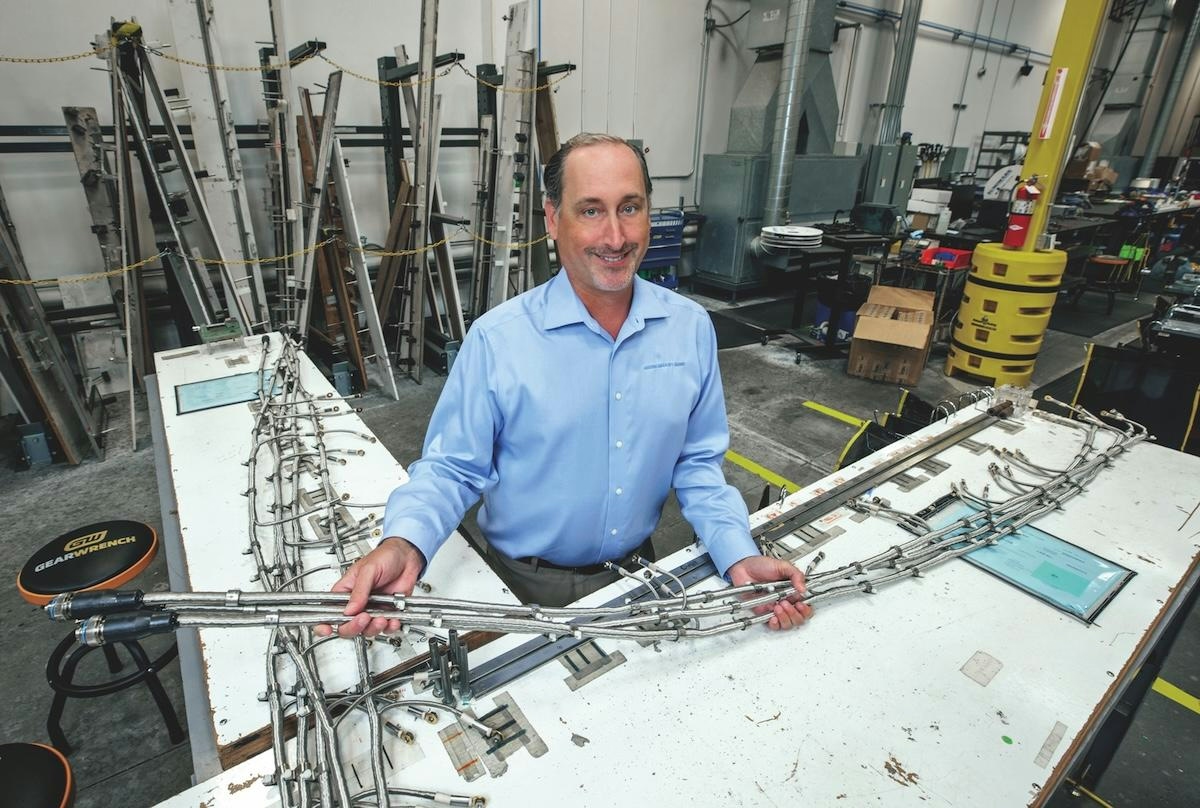AeroGenie — Your Intelligent Copilot.
Trending
Categories
Herber Aircraft Maintains Operational Flexibility

Herber Aircraft Maintains Operational Flexibility Amid Industry Challenges
As the aerospace sector grapples with ongoing supply chain disruptions and evolving tariff policies, Herber Aircraft Service Inc., a Hawthorne-based manufacturer, distributor, and repair station, continues to exhibit remarkable resilience. Established in 1978 by Bruce Herber as a modest aircraft hose shop, the company has transformed over nearly five decades into a rapidly expanding enterprise. Following Bruce Herber’s passing in 2024, leadership transitioned to Randy Herber, who has steered the privately held firm through a turbulent industry landscape while preserving its operational agility.
A Vital Contributor to the Aerospace Ecosystem
The aviation industry remains a significant economic force, supporting 9.4 million jobs and contributing $1.8 trillion annually to the U.S. economy, according to the National Business Aviation Association (NBAA). Kristie Greco Johnson, NBAA’s senior vice president of government affairs, emphasized the sector’s enduring positive trade balance and its status as one of the largest export contributors among manufacturing industries. Within this ecosystem, companies like Herber Aircraft serve as essential links in the supply chain, employing distinctive business models that enable them to adapt to market fluctuations.
Randy Herber characterizes the company as a “hybrid” operation, combining a distribution product line with light assembly and repair services. The firm maintains an inventory valued at approximately $30 million, sourcing products from manufacturers and distributing completed goods. Its power management division, Eaton Aerospace Fluid Conveyance, undertakes light assembly work, while the company’s expertise in wire harness repairs primarily supports the commercial airline sector.
Herber Aircraft’s clientele is notably diverse, encompassing over 2,000 active customers ranging from individual pilots and flight schools to major aerospace contractors such as Lockheed Martin, Northrop Grumman, Bell Helicopter, Blue Origin, and SpaceX. The company also extends its services beyond aerospace, catering to various industrial applications. Among its international partners is Fuji Industries Corp., a specialized trading company managing aviation supply chains in Japan. Ko Butler, president of Fuji’s U.S. operations, highlighted the importance of global collaboration in aircraft manufacturing despite geopolitical tensions, praising Herber Aircraft’s exceptional customer service and its ability to meet the exacting standards of Japanese clients.
Navigating Tariff Uncertainty and Emerging Competition
Herber Aircraft faces increasing challenges amid shifting tariffs, regulatory ambiguities, and intensifying global competition. Randy Herber acknowledged the prevailing uncertainty, noting that many industry participants remain cautious due to unclear tariff impacts. The NBAA has underscored how such ambiguity is already affecting aircraft transactions, complicating business planning and operations.
Looking forward, Herber Aircraft’s operational flexibility will be tested by growing competition in the European market for aircraft wheel and brake maintenance, repair, and overhaul (MRO) services. This sector is anticipated to expand at a compound annual growth rate of 5.2% between 2025 and 2032, driven by aging aircraft fleets and increasingly stringent safety regulations. The resulting competitive pressures may compel market players to enhance their capabilities and expand their presence.
Geopolitical developments also stand to influence the aerospace landscape. The potential redeployment of B61-12 nuclear weapons to RAF Lakenheath, with implications for NATO’s nuclear strategy, could affect operational dynamics within Europe’s aerospace sector. Such factors add layers of complexity to an already challenging environment.
Despite these evolving pressures, Herber Aircraft’s adaptability and commitment to customer service position the company to effectively navigate the shifting contours of the global aerospace industry.

Emirates Unveils Cabin Design for New Boeing 777X

Eighteen Years On, the Airbus A380 Remains Central to a $34 Billion Airline

How a boom in luxury airline seats is slowing down jet deliveries

Navitaire Outage Attributed to Planned Maintenance

DigiYatra Debuts Outside Aviation at India AI Impact Summit

Vietnam Orders Strengthen Boeing’s Commercial Outlook

Airbus Signals Uncertainty Over Future A400M Orders

JobsOhio Awards $2 Million Grant to Hartzell Propeller for Innovation Center

Collins Aerospace Tests Sidekick Autonomy Software on YFQ-42A for U.S. Air Force CCA Program

How the Airbus A350-1000 Compares to the Boeing 777
